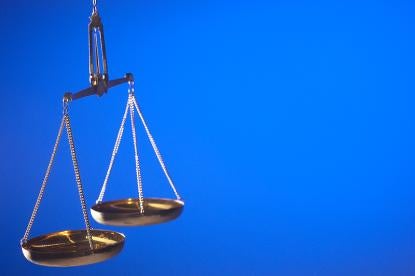The US Court of Appeals for the Fifth Circuit adopted and applied the Supreme Court of the United States’ rationale for an award of attorneys’ fees in patent cases to a trademark case. In doing so, the Fifth Circuit aligned its interpretation of what constitutes an “exceptional” case under the Trademark Law (15 USC § 1117) with the meaning of an “exceptional” case under the Patent Laws (35 USC § 285). Baker v. DeShong, Case No. 14-11157 (5th Cir., May 3, 2016) (Stewart, J).
Clark Baker is a private investigator and former police officer who is CEO of the Office of Medical and Scientific Justice, Inc. (OMSJ). OMSJ identifies as a nonprofit corporation dedicated to investigating medical and scientific corruption cases. Through its websites, OMSJ markets services to defend individuals accused of concealing their HIV-positive status and subsequently transmitting the disease to uninfected individuals.
Jeffrey DeShong launched two websites critical of OMSJ: www.hivinnocencegrouptruth.com and www.hivinnocenceprojecttruth.com. DeShong acknowledged that his websites were created to deconstruct information posted on OMSJ’s “HIV Innocence Group” website, and in particular to rebut what he considered OMSJ’s false research and misrepresentations surrounding HIV and AIDS.
After DeShong launched the websites, Baker and OMSJ filed suit alleging trademark infringement under the Lanham Act and Texas state law claims for trademark infringement, defamation and business disparagement. The district court dismissed the Lanham Act claims, finding that even if the allegations were accepted as true, a reasonable person could not confuse the content on DeShong’s website with the OMSJ “HIV Innocence Group” trademark. The district court then declined to exercise jurisdiction over the state law claims. Eventually DeShong, through pro bono counsel, moved for attorneys’ fees under § 1117(a) of the Lanham Act. The district court applied the Fifth Circuit’s standard requiring clear and convincing evidence that a case be brought in bad faith in order to be deemed exceptional and denied an award of fees. DeShong appealed, arguing that the Supreme Court’s 2014 decision in Octane Fitness, LLC v. Icon Health and Fitness, Inc. (IP Update, Vol. 17, No. 5) should control.
On appeal, the Fifth Circuit agreed with DeShong and adopted the Octane Fitness approach to awarding fees for an exceptional case. The Fifth Circuit identified the parallels between its previous bad faith standard and the US Court of Appeals for the Federal Circuit’s previous two-part test, both of which had required a showing by clear and convincing evidence. The Fifth Circuit reasoned that the Octane Fitness approach was further warranted because the text of § 1117(a) of the Lanham Act is identical to the corresponding text in § 285 of the Patent Act (stating that “[t]he court in exceptional cases may award reasonable attorney fees to the prevailing party”). In view of the similarity of the statutory language, the Fifth Circuit concluded that Congress intended the language to have the same meaning in both statutes. Accordingly, the Fifth Circuit concluded that an “exceptional” case under the Lanham Act is a case that stands out from others with respect to the substantive strength of a party’s litigating position (considering both the governing law and the facts of the case) or the unreasonable manner in which the case was litigated.
The applicable standard for a finding of an exceptional case in a trademark case is flexible, similar to the patent context, and defers to the discretion of a district court without requiring a rigid assessment of culpable conduct. An exceptional case need not be established through clear and convincing evidence; only preponderance is required. Going forward, district courts in the Fifth Circuit should address requests to award attorneys’ fees under the Lanham Act on a case-by-case basis that considers the totality of the circumstances.
Practice Note: The Fifth Circuit’s decision to merge Octane Fitness’s definition of “exceptional” into the Lanham Act may make it easier for free speech defenders to retain counsel when sued for the exercise of speech or expression that the party bringing the lawsuit seeks to extinguish (i.e., a SLAPP-type lawsuit) under guise of a Lanham Act action.



 i
i


